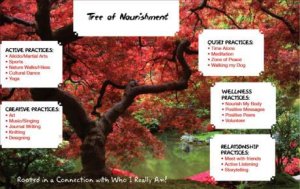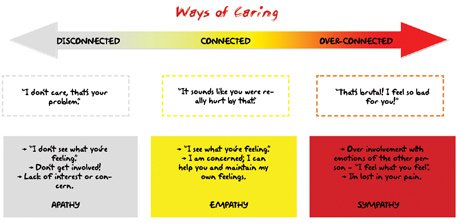Social and Emotional Curriculum: Compassion in Action
Door 5 of the 7 Doors to Happiness
Your content has been saved!
Go to My Saved Content.This is part five of the seven-part series from the Project Happiness curriculum. It explores the many facets of happiness and provides practical techniques to generate greater happiness and a more meaningful life -- from the inside. By reclaiming the happiness you were born with, you can influence those around you to tap into the best within themselves, too. Each door can be done alone, or the Seven Doors journey can be done in sequence. You can use this exercise to explore your own relationship to happiness, and/or bring it to your students to help them build a stronger sense of their own happiness. If you have any questions, please don't hesitate to post them in the comments section below.
DOOR FIVE: COMPASSION IN ACTION
"Too often we underestimate the power of a touch, a smile, a kind word, a listening ear, an honest compliment, or the smallest act of caring, all of which have the potential to turn a life around." -- Leo Buscaglia
Compassion is a key to inner happiness and a powerful way to spread the joy around. It is also part of our evolving definition of leadership. But in order to cultivate compassion, self-compassion has to be established, too. Let's explore both sides.
Most people would agree that it is important to have compassion and help others. It is one of the fastest ways to experience a longer-lasting happiness, also known as joy. While short-term pleasures (like new gadgets) quickly fade, no one can take away the joy that comes from doing something kind for another person. It's ingenious that children are often our best teachers.
George Lucas on Joy - Project Happiness Film from Project Happiness on Vimeo.
Self-Compassion
Looking a little deeper, what about self-compassion? In an airplane, we are reminded to put the oxygen mask on ourselves first, so we can then be of help to others. As you and your students find ways to look after yourselves, you'll become more resilient, happier and have more to share. Sound good? The Tree of Nourishment suggests some options. Consider asking your students which branches they would choose to spend more time pursuing. This is not selfish -- it is fuel!

Self-Compassion Strategies
Now, what about those inner resources? Are your thoughts building you up or tearing you down? The "critic's voice" is constantly lurking in the wings, and it's sneaky ("I'll never be good at that" or "I look SO bad today"). Choosing to be kind and understanding to oneself will create much more room for positive outcomes. If students can learn this at an early age, it becomes a real advantage.
Are your students:
- Comparing themselves to others and putting themselves down? What if they focused and built upon their strengths instead?
- Giving up on doing something because it seems hopeless? By breaking challenges down into smaller steps and modifying their mindset (see Door Three: Self-Reflection -- Getting Unstuck), their openness to learning new skills could be greatly improved.
- Worrying too much about the future? Remembering to make the most of this moment is a great antidote (see Door Four: Self-Mastery -- Finding a Place for Anger).
An interesting and effective exercise is having students write a letter to themselves about an upsetting situation in their lives, as if they were writing it to a friend caught in the same situation (or alternately, writing what a good friend would say to them). This can connect them with their resiliency in brand new ways.
Dr. Kristin Neff reports that higher levels of self-compassion are linked to more happiness, optimism, curiosity and connectedness, and to less anxiety, depression, rumination and fear of failure. She outlines three steps:
- Notice the suffering. Be aware of how you feel.
- Be kind and caring to yourself in response to that suffering. "This is a hard situation. I need to be gentle with myself now, not beat myself up."
- Remember that imperfection is part of the human experience -- everyone experiences hardships. It's something we all share.
Self-Esteem vs. Self-Compassion
As a culture, we have for years been obsessed with increasing our children's self-esteem, defined here as an "evaluation of self-worth." This has some downsides:
- Self-esteem is judged and measured by recent successes or failures. If you fail, you feel bad about yourself. If you succeed, you feel good. In reality, you're important and should value yourself separately from your external circumstances.
- To boost their self-esteem, kids can be mean to others as they try to be perceived as better, cooler or more popular.
- Preoccupation with self-esteem can also give rise to narcissism.
Self-compassion, on the other hand, provides the benefits of self-esteem without the baggage.
